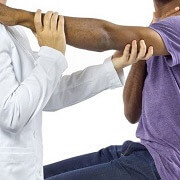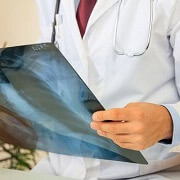You may think a headache is a headache is a headache, but that’s not quite true. Actually, there are more than 150 different kinds of headache disorders. Some are mild, while others are severe; some are relatively innocuous, and some pose a serious health threat.
Headache disorders and migraine are two of the most common conditions worldwide. Up to 1 in 20 adults have a headache every — or nearly every — day, and 1 in 7 experience a migraine attack. That’s a lot of pain.
At Pinnacle Pain and Spine, pain management specialists Dr. Matthew Crooks and Dr. Stuart Rammell treat all forms of headaches at their Scottsdale, Chandler, and Fountain Hills, Arizona locations.
Why do you keep getting headaches? It’s a complicated issue, so let’s look at major headache types, their causes, and what we can do to help you get rid of your pain.
The difference between primary and secondary headaches
The first big distinction between headaches is primary versus secondary.
Primary headaches are not a symptom of underlying disease; they’re caused by problems with the pain-sensitive structures in your head. They may result from altered chemical activity in the brain, the misfiring of nerves, dilation of blood vessels, or problems with the muscles in your head and neck.
Some people have a genetic predisposition toward headache, meaning other family members may have headaches as well and pass on a faulty gene.
There are four types of primary headache disorders:
- Tension-type
- Migraine
- Cluster headaches
- New daily persistent headache
We’ll talk about the two most common in more detail in a moment.
Secondary headaches are those triggered by an underlying medical condition and are a symptom or side effect of that condition.
The most common primary headache disorders
Let’s break down the two most common primary headache disorders to understand what may be causing your recurring pain.
Tension-type headaches (TTHs)
Tension-type headaches are the most common type of headache, causing mild, moderate, or severe pain behind your eyes, as well as in your head and neck. Many people feel like they have a tight band around their forehead, which may present on just one side or both.
The duration of any attack can vary from 30 minutes to seven days, but the pain doesn’t worsen with activity, such as walking or bending over.
Stress and posture appear to be the two significant factors that lead to TTHs. Poor posture — sometimes called “tech neck” because it’s often seen in people who spend their day hunched over their computer or phone — leads to more stress placed on the atlantoaxial joint-upper cervical (neck) vertebrae.
Your shoulders compensate by stooping forward, but that leads to muscular imbalances, with some areas tightening painfully.
TTHs can also be brought on by bulging or herniated discs in the cervical spine or degenerative conditions such as arthritis.
You’re likely to continue suffering from TTHs until you implement an ergonomic workstation and take breaks from screens to reduce eye strain and shoulder stooping. At Pinnacle Pain and Spine, we can also address neck issues such as degenerative disc disease and arthritis.
To treat attacks, over-the-counter pain relievers and anti-inflammatories are usually sufficient.
Migraine
Migraine is more than just a headache. It’s a neurological disorder that produces painful attacks in response to certain triggers that differ from person to person. According to the Migraine Research Foundation, migraine is the sixth-most disabling disease in the world.
Along with crippling pain, a migraine attack causes sensory disturbances, loss of mental focus, and severe nausea and vomiting.
Unlike with TTHs, migraine pain usually presents as a throbbing on just one side of the head, which worsens with any kind of movement. The pain phase can last anywhere from four to 72 hours.
Neurological symptoms include:
- A heightened sensitivity to light, sound, and odors
- Nausea and vomiting
- Gastroparesis, a slowing of gut function
Migraine requires different types of treatments than TTHs, both to prevent attacks and to abort them. Some medication options for abortive therapy include the triptans, the ergotamines, and the new class of anti-CGRP monoclonal antibodies, which target a molecule involved in initiating the pain cycle.
Stress reduction and avoiding your triggers can also help prevent attacks or make them less debilitating.
If you keep getting headaches and don’t know why, our doctors at Pinnacle Pain and Spine can provide an accurate diagnosis and effective treatment.
To schedule a consultation with one of our pain specialists, call Pinnacle Pain and Spine at any of our locations, or request your appointment online.
No related posts.

















